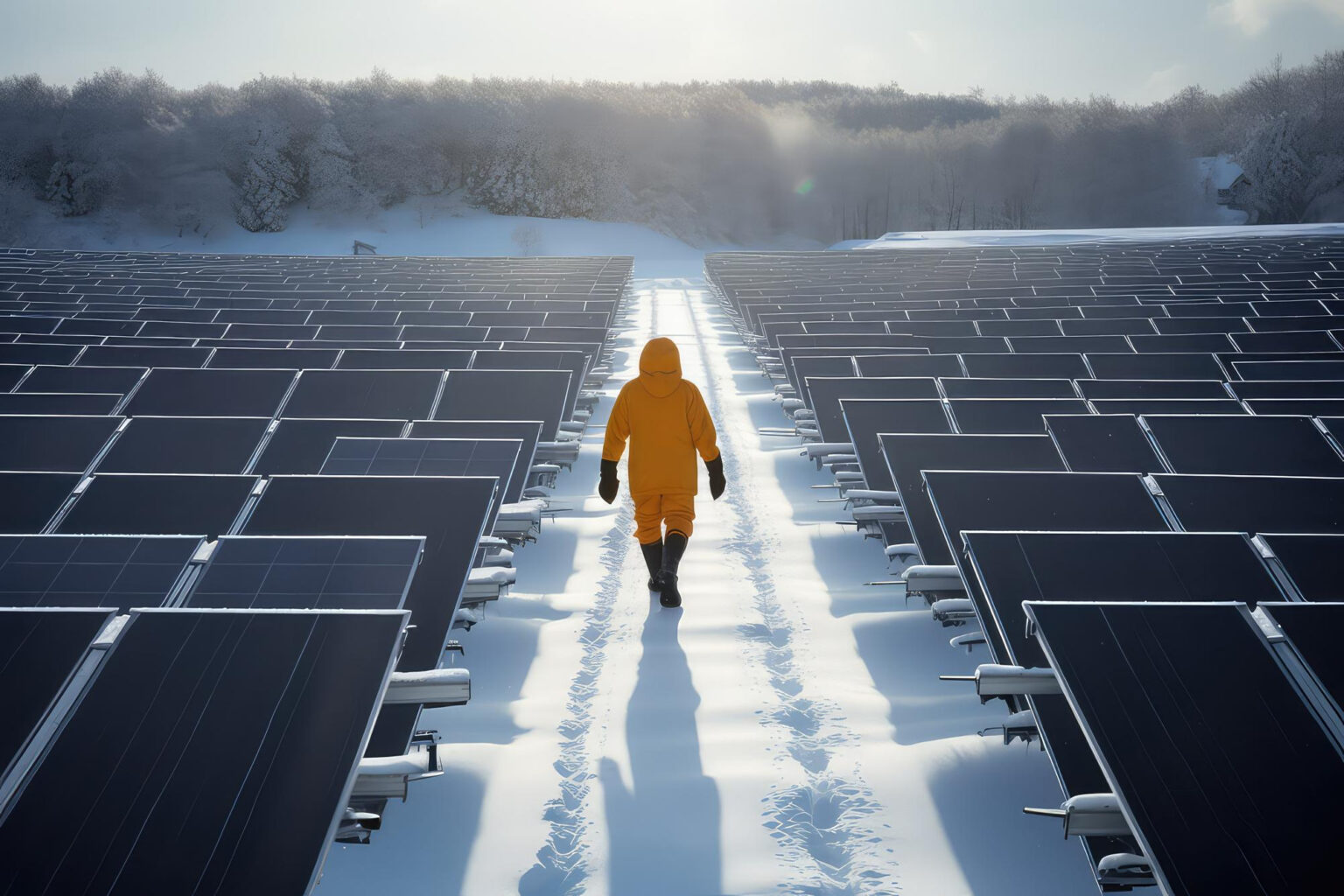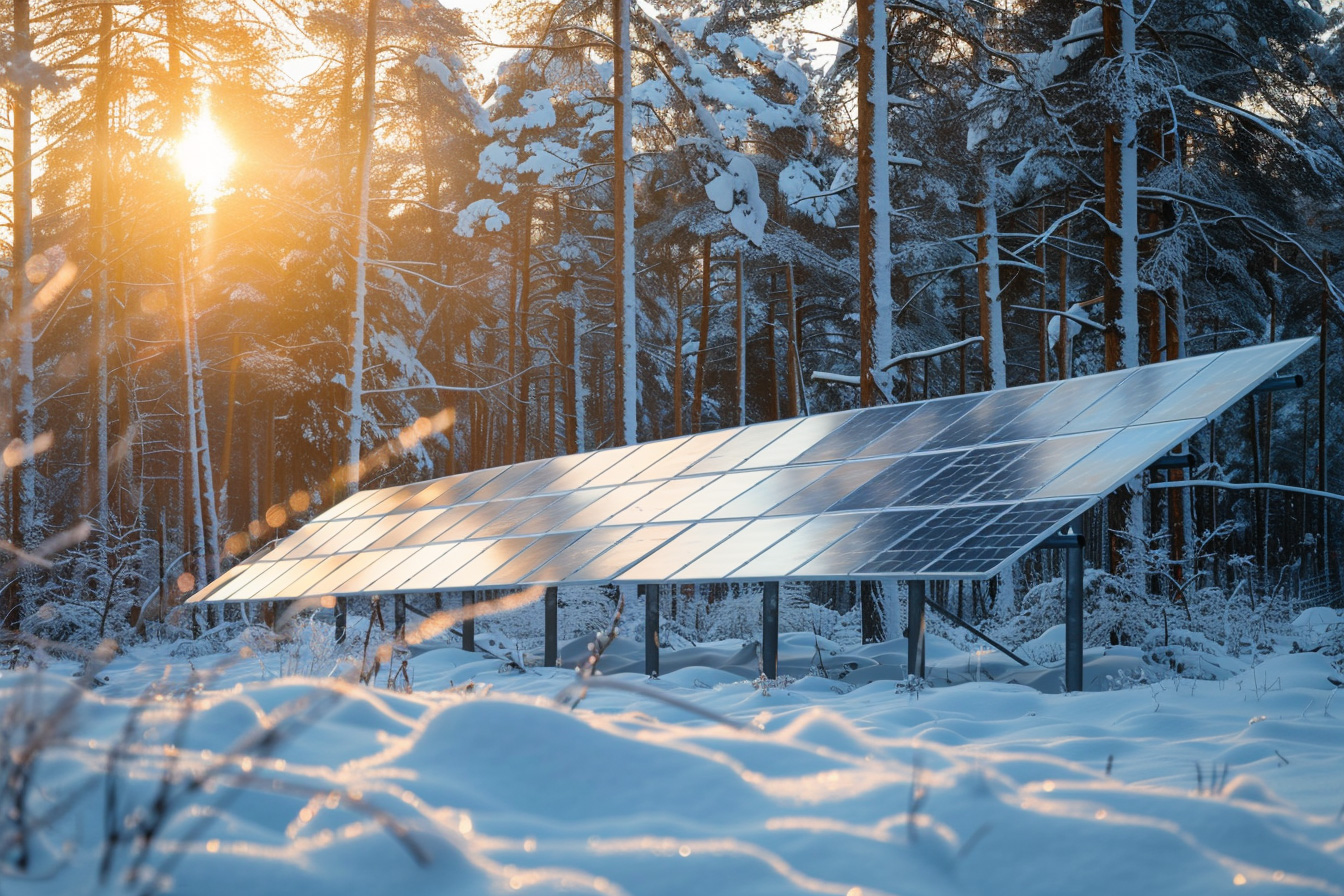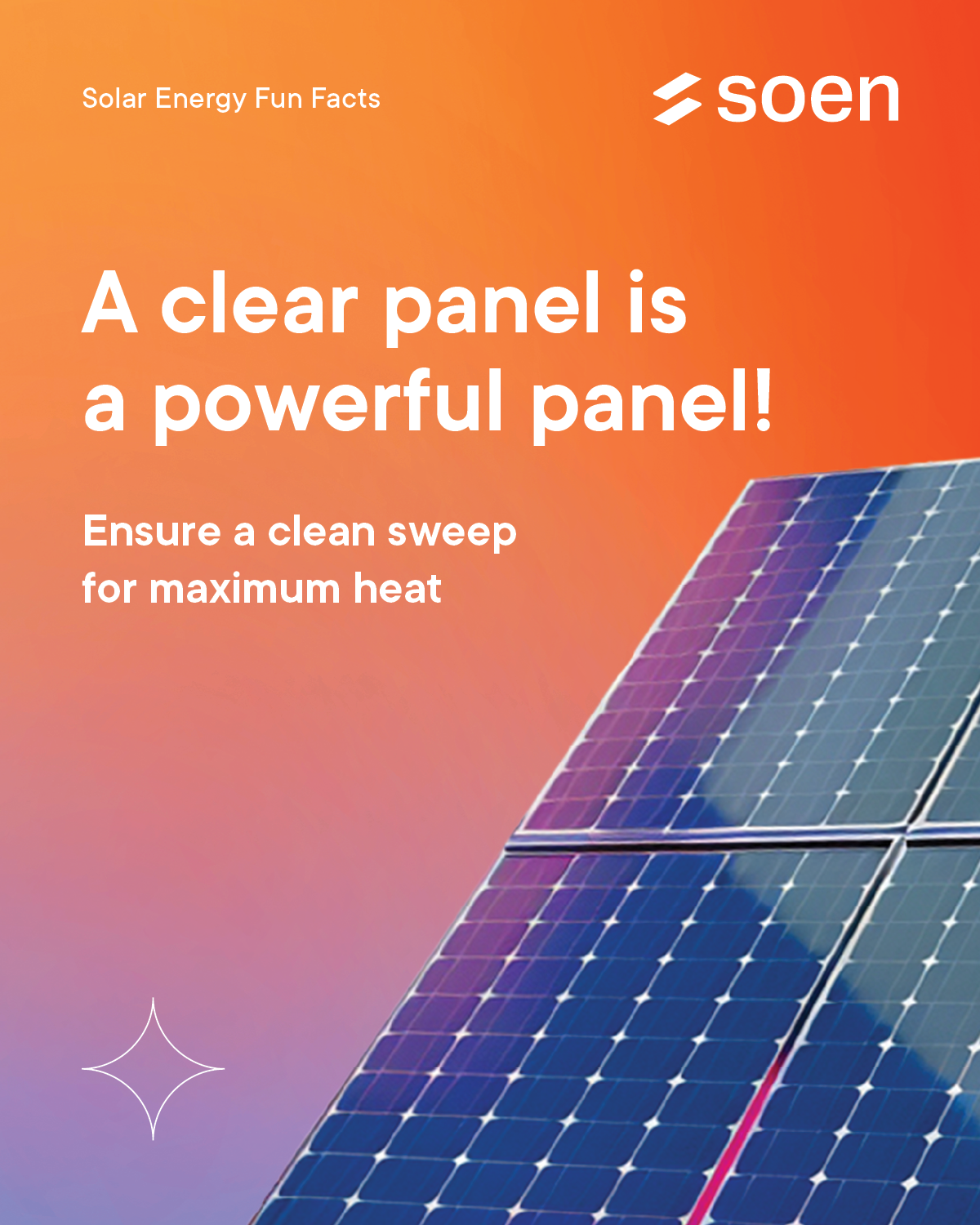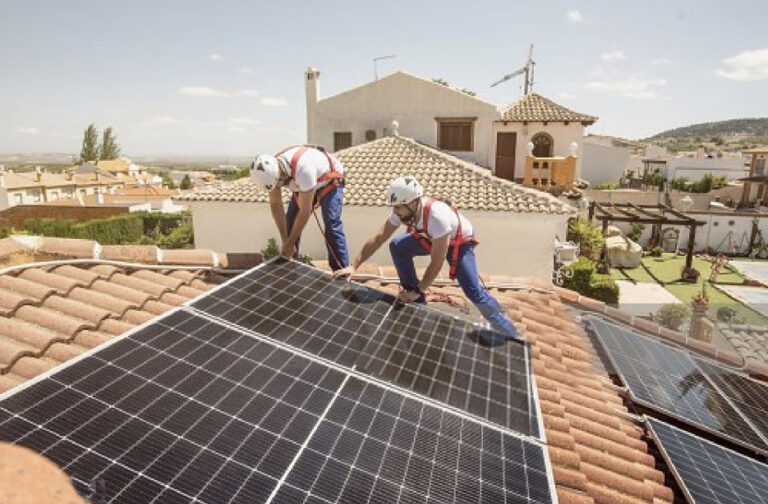Have you ever wondered how modern solar technology fares against the winter challenges? In the winter months, when days are shorter and the sun shines less intensely, questions often arise about the efficiency of solar panels and the performance of installations. At SOEN, we understand these concerns well and aim to provide comprehensive answers that will dispel doubts and show how to harness the full potential of green energy even during the coldest months.
Do Solar Panels Perform Less Efficiently in Winter?

Can solar panels even work in winter? Let’s start by dispelling a myth: solar panels not only operate in winter, but they can also be more efficient than on hot days. They convert sunlight into electricity through the photovoltaic effect, a process that paradoxically can be more efficient in cooler environments. Low temperatures enhance the conductivity of the semiconductors that make up the panels, increasing their efficiency. This is a counterintuitive fact for many who assume that solar heat equates to higher energy production.
Thanks to advanced technologies, panels are designed to work in various climatic conditions. For instance, the Vertex S TSM-NEG18R.28 panel from Trina Solar, showcased at the EXEX Fair, is designed to maximize energy efficiency, achieving better results at lower temperatures. This confirms that winter is an ally, not an enemy, of green energy.
Winter Challenges: Snow and Ice
Another common myth is about snow on the panels significantly limiting energy production. Snow and ice can pose a challenge for solar panels by blocking access to sunlight. However, in practice, snow often slides off the panels, especially if they are properly angled. Many modern systems are equipped with self-cleaning or heating functions that help keep the panels clean and free from winter obstacles. Moreover, white snow can act like a mirror, reflecting sunlight and potentially increasing the efficiency of panels through the albedo effect.

Why Do Solar Panels Produce Less Energy in Winter?
This naturally leads to the question: why is there a significant decrease in the number of kilowatts produced by our solar installations when winter sets in? After all, if solar panels can theoretically benefit from cooler temperatures, why do we observe a drop in the amount of energy generated during this period?
The answer lies in a combination of several factors that together reduce the efficiency of photovoltaic systems during the winter months. Primarily, shorter days and the sun’s lower position in the sky result in significantly less exposure of the panels to direct sunlight. This directly translates into a lower amount of energy that can be produced.
How to Maximize Energy Production in Winter?
There are ways to optimize the operation of solar installations in winter. The key is proper system design – the angle of the panels should be adjusted to the geographic latitude of the location to maximize sunlight exposure throughout the day. Additionally, sun-tracking systems can increase the amount of absorbed energy by dynamically adjusting the panels’ position.
Regular cleaning and maintenance of panels are essential throughout the year, but winter requires special attention. Contaminants such as leaves, dust, or bird droppings can significantly reduce panel efficiency. Cleaning the surface of the cells is a simple but effective way to ensure their optimal operation. Additionally, regular inspections and maintenance of the installation will help avoid major problems.

Are Solar Panels Worthwhile in Winter?
Investing in photovoltaics is a decision with long-term benefits. Winter months, though characterized by lower energy production, are only part of the annual cycle. Photovoltaic systems are designed to generate energy surpluses for the rest of the year, which can be used or stored for winter months. Solutions like net-metering allow for balancing energy production and consumption throughout the year, making photovoltaics a profitable investment regardless of the season.
Understanding why there is a decrease in energy production in photovoltaic systems during the winter months allows for better preparation and optimization of installations to work under these more challenging conditions. Winter does not have to mean the end of efficiency for photovoltaic systems. With modern technologies, proper configuration, and maintenance, it is possible to minimize the negative effects of seasonal changes and enjoy solar power all year round.
At SOEN, we are committed to providing solutions that enable our clients to benefit from solar energy throughout the year, helping them achieve their green goals and aspirations. We strive to ensure they can fully utilize the potential of their photovoltaic installations, regardless of the season.
We invite you to explore our range of solar panels.


